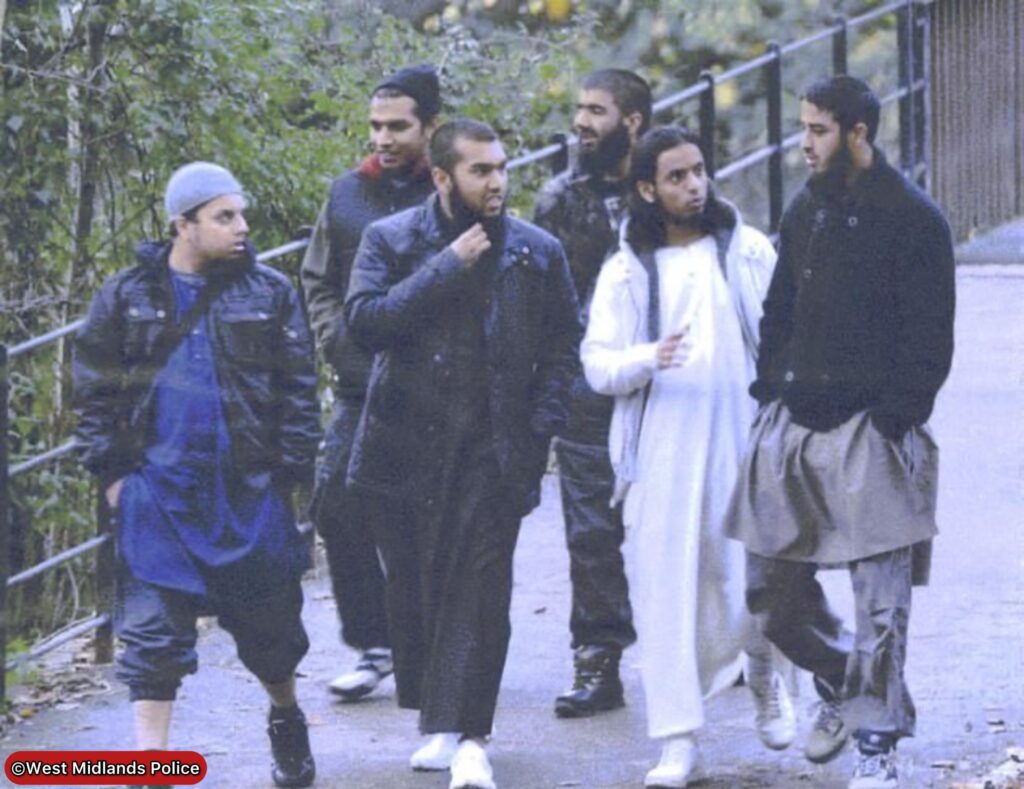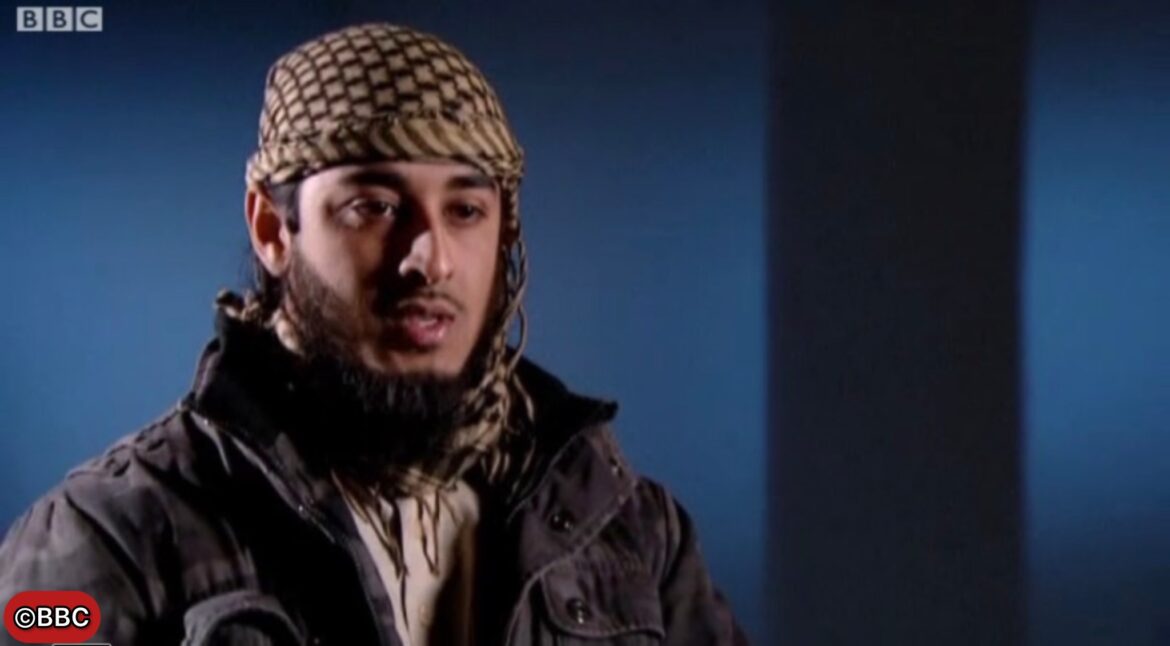Mohammed Shahjahan, 38, a convicted terrorist who plotted to bomb the London Stock Exchange and attack high-profile targets including Boris Johnson and Big Ben, has been released from prison following a Parole Board decision, the Ministry of Justice has confirmed.
The terror cell leader from Stoke-on-Trent, who was jailed alongside London Bridge killer Usman Khan in 2012, walked free despite failing a parole bid in 2023 and opposition from Lord Chancellor Shabana Mahmood in September 2024.
The Ministry of Justice said in a statement: “This decision was made by the independent Parole Board. A view opposing release was entered by the Lord Chancellor in September 2024. After thorough consideration of the Parole Board’s decision, it was concluded there was no legal basis to ask for reconsideration.”
Shahjahan was sentenced alongside Khan and fellow extremist Nazam Hussain after the three were snared in a joint MI5 and police operation following months of surveillance under Operation Guava.

The Terror Plot That Shocked Britain
The al-Qaeda-inspired cell had planned to launch a coordinated bomb-and-gun attack on the London Stock Exchange on Christmas Eve 2010, modelled on the November 2008 attacks in Mumbai, India. The group considered targets including Big Ben, Westminster Abbey, and the London Eye.
A handwritten target list found at one of the defendant’s homes listed the names and addresses of Boris Johnson, then London mayor, two rabbis, the US embassy, and the Dean of St Paul’s Cathedral.
Shahjahan, who appeared in a 2010 BBC documentary about people called Mohammed prior to his conviction, was branded the “ameer” or leader of the Stoke cell by security services. He was viewed as a key recruiter for the extremist network.
Deputy Assistant Commissioner Stuart Osborne described it at the time as “one of the most significant and complex counter terrorism operations of recent years”, adding: “Had we not taken action to disrupt this network, their actions could have resulted in serious casualties or fatalities.
Radical Ideology and Public Preaching
The Stoke group were prolific in spreading their warped ideology. They preached in public, distributed radical material and even set up a stall on Waterloo Road to push extremist propaganda.
In his 2010 BBC interview, Shahjahan outlined his vision for the United Kingdom to be ruled under sharia law. “Alcohol and pornography would be banned while adulterers would be stoned and thieves would have their hands cut off,” he told the broadcaster.
At their most chilling, the trio were overheard fantasising about planting explosives in Stoke pub toilets, while also discussing attacks on high-profile national landmarks. The plotters had also planned to set up a training camp in Pakistan-administered Kashmir on land owned by Khan’s family for British militants.
Controversial Sentencing and Release
Initially, Shahjahan, Khan and Hussain were each handed indeterminate sentences in 2012, with Woolwich Crown Court judges ruling the men posed such a significant risk that the public could not be “adequately protected by their being managed on licence in the community.
However, those sentences were overturned on appeal in 2013, when the Court of Appeal, led by Lord Justice Leveson, found the trio had been “wrongly characterised” as more dangerous than the others. They were instead given fixed sentences, meaning they would become eligible for automatic release at the halfway point.
Shahjahan was released in 2019 halfway through his 16-year term under automatic release rules. But he was recalled a year later after breaching licence conditions when his electronic tag showed he had managed to avoid monitoring to visit his wife.
Deadly Consequences
His close associate Khan was also freed early and went on to murder Jack Merritt, 25, and Saskia Jones, 23, at an offender rehabilitation conference at Fishmongers’ Hall in November 2019. Khan, 28, was shot dead by armed officers on London Bridge after the attack.
Another member of the gang, Mohibur Rahman, was released in 2015 but while serving part of his sentence at Belmarsh top security prison, he had formed a group called ‘The Three Musketeers’ with two other inmates. Upon release, they began plotting a Lee Rigby-style murder with knives, meat cleavers and pipe bombs. Rahman is now back behind bars.
Hussain, 38, was also let out early but was recalled to jail for breaching his licence 48 hours after Khan’s attack in November 2019.
Failed Opposition to Release
Despite the deadly track record of his associates, Shahjahan was granted parole following a hearing on 21 May 2025. GB News revealed that official Parole Board documents showed “The Secretary of State (Shabana Mahmood) elected not to be represented at the parole hearing on 21st May 2025.
This meant there was no government representation in the room to argue against the release of the convicted terrorist. Shahjahan was freed days after the hearing.
A prison psychologist had previously ruled Shahjahan had a “tendency to overlook the consequences of his actions” when he failed a parole bid in January 2023.
Political Reaction
The news of Shahjahan’s release has sparked fresh anger, with critics warning that he remains a danger. Conservative MP Nigel Mills had said when the parole board was considering his release: “I sincerely hope he won’t be released. Usman Khan was and he committed a terrible terror attack. This is clearly a man who is one of the most dangerous people in the country.”
GB News presenter Patrick Christys, who broke the story of Shahjahan’s release, questioned whether the Justice Secretary had given up in blocking the release, noting: “That dangerous jihadi lunatic was released days later. Do you think that Islamist can be deradicalised? Because I don’t.”
Wider Implications
The release comes amid ongoing concerns about the management of terrorist offenders in the community. Following Khan’s 2019 attack, British leaders questioned the early release system and sought a review of 74 convicts who received early conditional releases.
The case has reignited debate about whether convicted terrorists can truly be rehabilitated. Khan had been considered a rehabilitation “success story” by a Cambridge University programme before carrying out his deadly attack.
Shahjahan’s release represents another test of the system’s ability to manage high-risk offenders in the community. While the Parole Board has deemed him safe for release, the deadly actions of his former associates cast a long shadow over that decision.
The whereabouts of Shahjahan have not been disclosed, though he is believed to be subject to strict licence conditions and monitoring.
Follow for more updates on Britannia Daily



